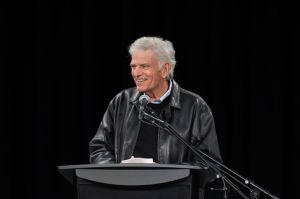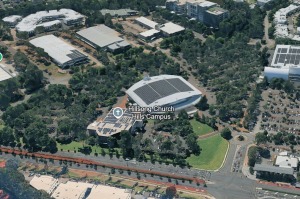Taxpayers Fund $1M Reading List About Islam Sent to Libraries Nationwide
The U.S. government has delivered a reading list on Islam to over 1,000 libraries nationwide, at taxpayers' expense.
The National Endowment for the Humanities (NEH) joined two private foundations, Carnegie and Duke, to fund "Muslim Journeys," a project that aims to present "new and diverse perspectives on the people, places, histories, beliefs, practices, and cultures of Muslims in the United States and around the world." Its main component is the "Muslim Journeys Bookshelf," a selection of 25 books and 3 films on Islam sent to nearly 1,000 libraries as well as a website and some other activities. Marvin Olasky, who brought this project to public attention, estimates the whole project cost about US$1 million.
As taxpayer and as specialist, I condemn the NEH list. Far from presenting "new and diverse perspectives," it offers the usual academic obfuscation mixed with Islamist triumphalism. It reminds us that of the many things governments should not do, is to compile bibliographies.
The 25 books quietly ignore current headlines so as to accentuate the attractive side of Islamic civilization, especially its medieval expression, and gently promote the Islam religion.
NEH's list and mine do share minor commonalities but our purposes could not be more different: I help readers understand why Muslims fill 30 out of 32 slots on the most wanted terrorists list and how Islamism came to be the main vehicle of barbarism in the world today. The NEH's list shields the reader's eyes from all this unpleasantness. Where I provide background to the headlines, NEH ignores them and pretends all is well with Islam, as is the federal government's won't.
I seek to answer burning questions: Who was Muhammad? What is the historical impact of Islam? When is warfare jihad? Why did Islamism arise? How does tribal culture influence political life? Where can one locate signs of hope for Islam to moderate? In contrast, the NEH list offers a smattering of this and that – poetry, personal accounts, antiquities, architecture, religion and history, original texts, and a smidgeon of current events, preferably presented fictionally.
I suggest Marshall G. S. Hodgson's 3-volume scholarly masterpiece, The Venture of Islam, while NEH proffers Jim Al-Khalili's derivative House of Wisdom: How Arabic Science Saved Ancient Knowledge and Gave Us the Renaissance. I offer up books by sturdy anti-Islamist Muslims such as Khalid Durán's introduction to Islam or Bassam Tibi's Challenge of Fundamentalism. The endowment, of course – for what else does a government agency do? – promotes Islamists, including the Canadian phony moderate Ingrid Mattson and the Obama administration's favorite Eboo Patel.
My books are personal selections based on decades in the field; NEH's is a mish-mash brokered by a committee of four standard-issue academics.
Unfortunately, today's scholars have a strange tendency to focus in on questions no one is asking, as do many of the NEH books, and pretend all is well with Islam.



























